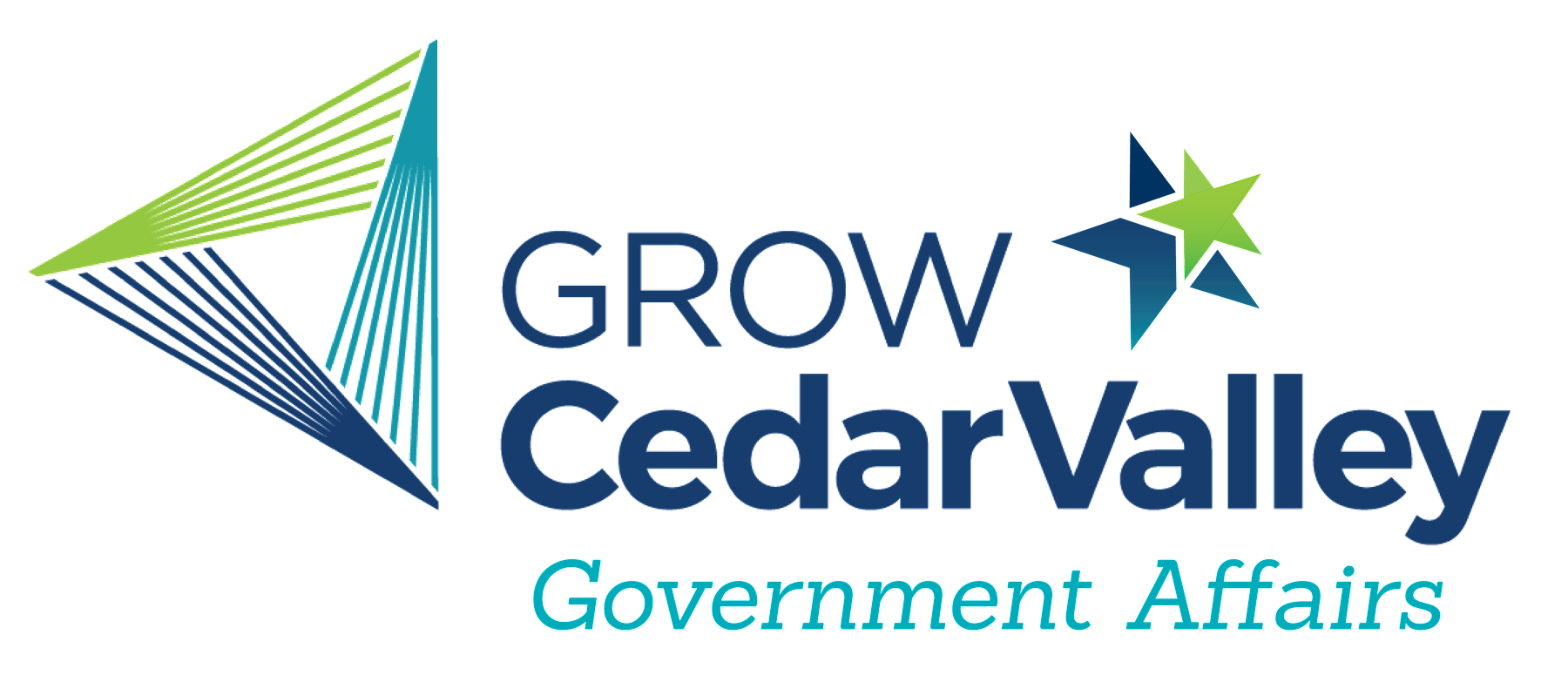How Business Can Impact Legislation - You Have a Voice
posted on Wednesday, March 4, 2020 in Government Affairs

Written by Steve Firman, Director of Government Affairs
Businesses, especially our investors, look to Grow Cedar Valley and other associations or organizations to help them interact with government at the local, state and federal levels. Your involvement is key to giving you a voice in affecting how your business is impacted by all levels of government.
Grow Cedar Valley focuses its advocacy efforts on the state legislature.
Each year, Grow Cedar Valley goes through a process of building a legislative policy agenda aimed at the Iowa legislature. This process involves many of our investors in answering a battery of survey questions, participating in our Government Affairs Committee discussions and finally in crafting the agenda that is sent to the Grow Cedar Valley Board for approval and adoption. Grow Cedar Valley staff then uses this agenda to guide its advocacy efforts throughout the legislative session.
There are several tips and tools that you can use to enhance your own advocacy efforts by successfully engaging elected officials.
Start by building your case using the steps below:
- When you contact a legislator, immediately identify the issue or legislation you are talking about; identify the bill by name and number (e.g., SF1028) if possible
- State whether or not you are a constituent and if you are representing a particular organization
- State your support for, or opposition to, the bill and the reasons for your position; try to personalize the issue by stating how it will affect you, other constituents or the organization you are representing
- Give factual information; misrepresenting the facts will only cause the legislator to mistrust you; avoid industry jargon and confusing statistics
- If it’s true, identify yourself as an “expert” as it will lend credibility; for example, if you are a nurse, your views on health care legislation will carry additional weight
- The optimal time to communicate with a legislator is while the bill you are interested in is in committee or a subcommittee; if the bill has already been voted on, you won’t have much impact
- Offer to follow-up with additional information by letter, telephone or in person; legislators rely on accurate and timely information from constituents to assist them in the consideration of legislation
Personal interactions, when performed properly, are the most influential form of lobbying that exists.
Your challenge is to know your issue, be organized, and communicate clearly. It’s good to remember campaigns are excellent times to “get to know” legislator; your relationships forged there will help maximize your impact later. Likewise, whenever your legislator is holding a forum or listening post, this is a good time to meet your legislator informally. Here are a few tips for handling meetings with legislators:
- At the Iowa Statehouse, scheduling an appointment is nice, but not necessary; seeing legislators generally requires no more than giving a request slip to a doorman at the front of either chamber and waiting
- When visiting a legislator at the Capitol or in a private meeting, bring written materials that contain the information you wish to discuss that can be left with the legislator
- Once the meeting begins, state your issue and position as quickly as possible; if there are several members of your group, appoint a spokesperson to lead the discussion
- Leave your contact information and know with whom you should follow-up
While formal letters used to be the preferred way to communicate with legislators, today there are many effective ways to communicate with them.
- E-mail offers a quick, convenient method of communication with legislators; many gauge the number of e-mails on either side of an issue to determine their vote
- Keep the message short and focused; 1-2 paragraphs at the most, one sentence may suffice
- Always include your name, address, e-mail address, and telephone number; this gives the legislator a quick and easy way to tell if you are a constituent
- Do not send attachments unless you are responding to a request for information from the legislator
- Sending a “broadcast” e-mail to many legislators at once is acceptable; best practice is to list recipients in blind carbon copy (bcc) area so legislators don’t know right away that you sent the same e-mail to everyone
- Always attempt to rise above the clutter; legislators are getting hundreds of emails a day, so yours must stand out or be very personal with your own legislators
When something is happening, like an important vote on an issue of importance to you, making telephone calls or texting are often your best options.
- It is ideal to have your legislator’s cell phone number so you can call or text them individually and directly
- If you need to call them through the Capitol switchboard, you will generally leave a call back number where you can be reached (Senate: 515-281-3371; House of Representatives: 515-281-3221)
- Occasionally you will reach the legislator’s voice mail, but don’t count on it
- Follow telephone calls when appropriate with an e-mail or a letter in which you briefly restate your position and thank them for their time
By using these tips and tools, you and your business can have a meaningful impact on legislation and give yourself a voice in the advocacy process. As always, at Grow Cedar Valley we stand ready to assist all our investors in any way possible or desired. Please contact us if you believe we can be of service.
Steve Firman, Director of Government Affairs
(319) 239-6067
steve@growcedarvalley.com
